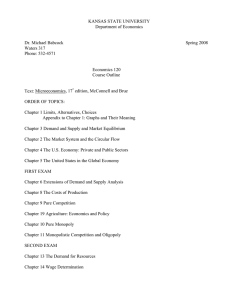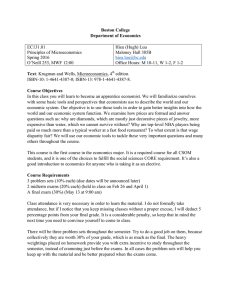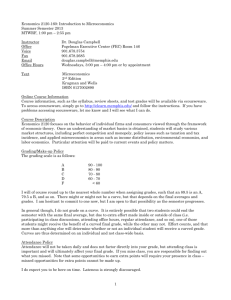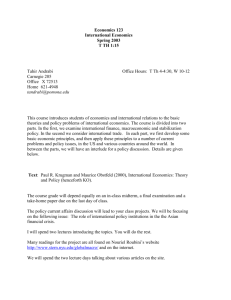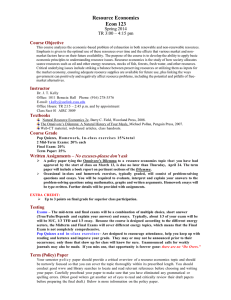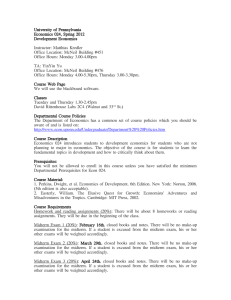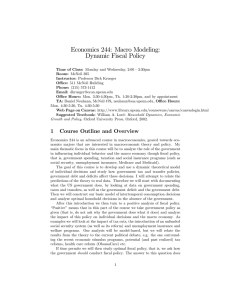EC 308.01 - Game Theory in Economics - Spring 2016
advertisement
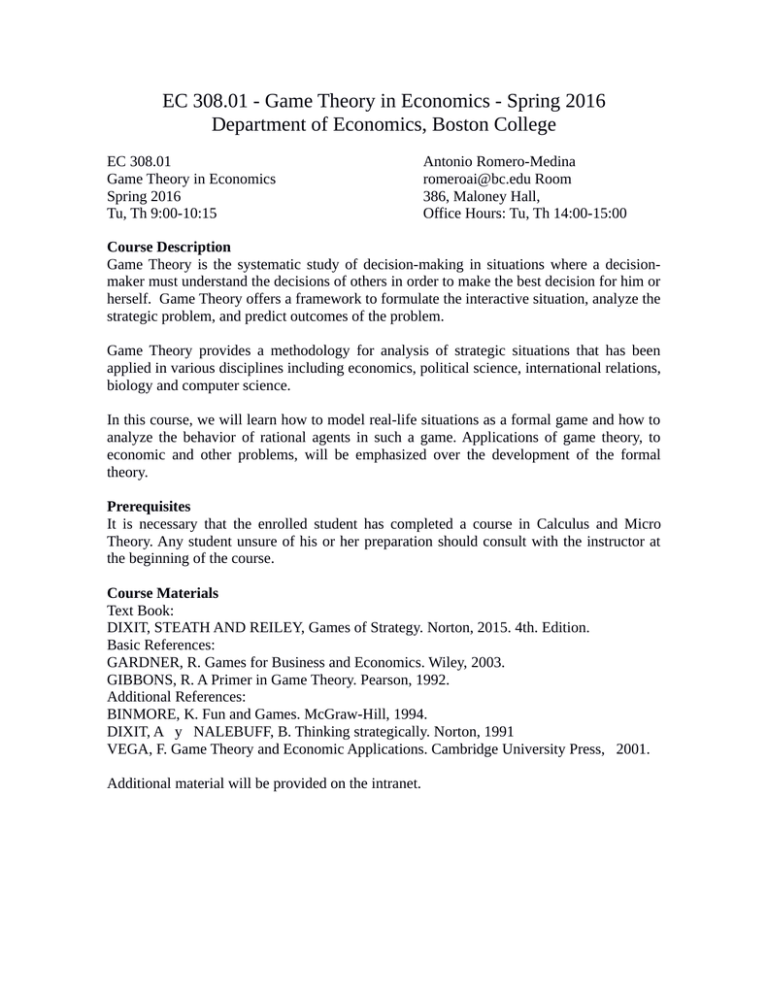
EC 308.01 - Game Theory in Economics - Spring 2016 Department of Economics, Boston College EC 308.01 Game Theory in Economics Spring 2016 Tu, Th 9:00-10:15 Antonio Romero-Medina romeroai@bc.edu Room 386, Maloney Hall, Office Hours: Tu, Th 14:00-15:00 Course Description Game Theory is the systematic study of decision-making in situations where a decisionmaker must understand the decisions of others in order to make the best decision for him or herself. Game Theory offers a framework to formulate the interactive situation, analyze the strategic problem, and predict outcomes of the problem. Game Theory provides a methodology for analysis of strategic situations that has been applied in various disciplines including economics, political science, international relations, biology and computer science. In this course, we will learn how to model real-life situations as a formal game and how to analyze the behavior of rational agents in such a game. Applications of game theory, to economic and other problems, will be emphasized over the development of the formal theory. Prerequisites It is necessary that the enrolled student has completed a course in Calculus and Micro Theory. Any student unsure of his or her preparation should consult with the instructor at the beginning of the course. Course Materials Text Book: DIXIT, STEATH AND REILEY, Games of Strategy. Norton, 2015. 4th. Edition. Basic References: GARDNER, R. Games for Business and Economics. Wiley, 2003. GIBBONS, R. A Primer in Game Theory. Pearson, 1992. Additional References: BINMORE, K. Fun and Games. McGraw-Hill, 1994. DIXIT, A y NALEBUFF, B. Thinking strategically. Norton, 1991 VEGA, F. Game Theory and Economic Applications. Cambridge University Press, 2001. Additional material will be provided on the intranet. Course Requirements and Grading Your score for this course will be based on one midterm (40%), one final exam (40%), and problem sets (20%). Your grade for the course will be based on your score, with minor favorable adjustments made on the basis of your level of class participation and discussion. While I reserve the right to alter the date of the midterm exam, you should plan to take it on March 17th. All exams will be in-class exams. The final exam will be comprehensive. There are no make-up exams. Course Topics 1. Static Games (4 weeks) a. The Elements of the Game. b. Solution Concepts. c. Mixed Strategies. d. Continuous Strategies and Applications. 2. Dynamic Games (5-6 weeks) a. Perfect Information. b. Imperfect Information. c. Credibility and Strategic Commitment d. Economic Applications. 3. Repeated and Bayesian Games (4 weeks) a. Finitely Repeated Games. b. Infinitely Repeated Games. c. Types, Beliefs and Bayesian Equilibrium. d. Bayesian Games: Economic Applications.
